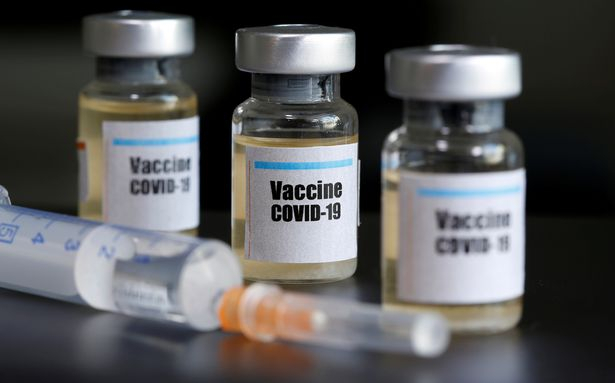Amid fears of a new fast-spreading Coronavirus variant in the UK, the health authorities allegedly decided to adopt a "mix and match" approach to COVID-19 vaccination, according to a report. But the editor of the British Medical Journal said that there was no such recommendation.
The New York Times reported that UK healthcare officials were allowing Coronavirus patients to be given a second dose that is different from their first shot. But Fiona Godlee, who has been editor in chief of The BMJ since 2005, said that the report was "seriously misleading and requires urgent correction".
The UK has approved two vaccines, the Pfizer-BioNTech jab and the Oxford-AstraZeneca vaccine. Dr. Mary Ramsay, Head of Immunisations at Public Health England, said if people have had the Pfizer jab first, they should not receive the AstraZeneca shot. She also shot down the viral claims saying that "we do not recommend mixing the COVID-19 vaccines." Even Professor Anthony Harnden, the Deputy Chairman of the Joint Committee on Vaccination and Immunisation (JCVI), confirmed advice remains to have the same vaccine.

Mix and Match Vaccine Recommendation
According to the NYT, the updated guideline says that it is "reasonable" to have a different type of vaccine for a person's second dose if the other one is unavailable.
But Dr. Ramsay said: "Every effort should be made to give them [the people] the same vaccine, but where this is not possible it is better to give a second dose of another vaccine than not at all." She also explained that on the "extremely rare occasions" where the same vaccine is not available or it is unknown which jab the patient received, it is better to give a second dose of another vaccine instead of nothing at all.
The editor of the BMJ has asked the US publication to correct the article as she said that the Joint Committee on Vaccination and Immunisation (JCVI) does not make any recommendation to mix and match. She has urged NYT to print a "highly visible correction" as soon as possible.
According to the current guidance from Public Health England, "Individuals who started the schedule and who attend for vaccination at a site where the same vaccine is not available, or if the first product received is unknown, it is reasonable to offer one dose of the locally available product to complete the schedule."

However, scientists and healthcare experts have shot down the guidance which contradicts information from other countries' healthcare agencies, including the US Centre for Disease Control and Prevention (CDC).
According to the federal agency, these mRNA vaccines are not interchangeable with each other or with other COVID-19 vaccine products. "The safety and efficacy of a mixed-product series have not been evaluated. Both doses of the series should be completed with the same product," it added.
As per Prof Harnden, there are ongoing studies to look at mixing vaccines but the current recommendation is to use the same vaccine doses. "When we see the data for those and are secure about the data, then we may be recommending mixed vaccines," he added.
He also defended the plans made by the UK government to delay the second dose of the Pfizer-BioNTech vaccine from three weeks to 12 weeks after the first jab, as he believes that a long wait can protect patients more effectively.








